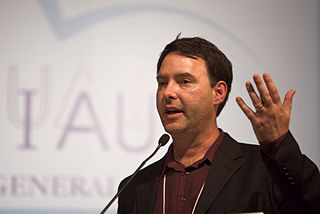A Quote by Fulton J. Sheen
The workmen in a factory may have a shadowy, unknown absentee "employer" - the thousands of individual owners of stock - whom "management" represents and tries to please by extra dividends. The workman's livelihood is at the disposition of strangers who make a single demand of their representatives: higher profits.
Related Quotes
Faith is precisely the paradox that the single individual as the single individual is higher than the universal, is justified before it, not as inferior to it but superior - yet in such a way, please note, that it is the single individual who, after being subordinate as the single individual to the universal, now by means of the universal becomes the single individual who as the single individual is superior, that the single individual as the single individual stands in an absolute relation to the absolute.
The greatest problem before engineers and managers today is the economical utilization of labor . The limiting of output by the workman, and the limiting by the employer of the amount a workman is allowed to earn, are both factors which militate against that harmonious co-operation of employer and employee which is essential to their highest common good.
The other dynamic keeping the stock market up - both for technology stocks and others - is that companies are using a lot of their income for stock buybacks and to pay out higher dividends, not make new investment,. So to the extent that companies use financial engineering rather than industrial engineering to increase the price of their stock you're going to have a bubble. But it's not considered a bubble, because the government is behind it, and it hasn't burst yet.
Nothing in finance is more fatuous and harmful, in our opinion, than the firmly established attitude of common stock investors regarding questions of corporate management. That attitude is summed up in the phrase: "If you don't like the management, sell your stock." ... The public owners seem to have abdicated all claim to control over the paid superintendents of their property.
Now in regard to trades and other means of livelihood, which ones are to be considered becoming to a gentleman and which ones are vulgar, we have been taught, in general, as follows. First, those means of livelihood are rejected as undesirable which incur people's ill-will, as those of tax-gatherers and usurers. Unbecoming to a gentleman, too, and vulgar are the means of livelihood of all hired workmen whom we pay for mere manual labour, not for artistic skill; for in their case the very wage they receive is a pledge of their slavery.
Management, in the sense of employer, is merely the agent for the public, the stockholders and the employees. It is management's job to preserve the balance fairly between all these interests, that each may have his fair share without imperiling the continuity of the effort upon which the whole depends.
The vegetable life does not content itself with casting from the flower or the tree a single seed, but it fills the air and earth with a prodigality of seeds, that, if thousands perish, thousands may plant themselves, that hundreds may come up, that tens may live to maturity; that, at least one may replace the parent.






































